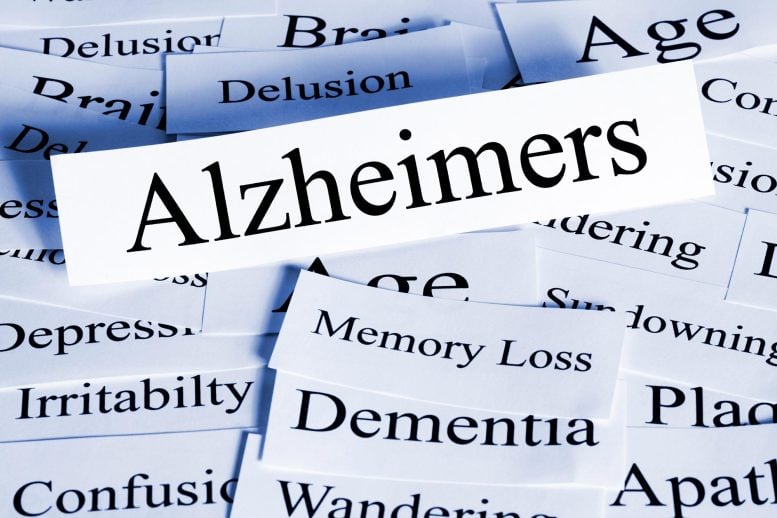
A study from UCLA’s David Geffen School of Medicine suggests that taking vitamin D3 and omega-3 fatty acids can improve the immune system’s ability to remove amyloid plaques in the brain, providing new insight into the potential of nutrition to combat Alzheimer’s disease.
New research from the David Geffen School of Medicine at UCLA shows how vitamin D3 and omega-3 fatty acids may enhance the immune system’s ability to clear the brain of amyloid plaques, shedding further light on a possible role for nutritional substances in boosting immunity to help fight Alzheimer’s disease.
A team of academic researchers has pinpointed how vitamin D3 and omega-3 fatty acids may enhance the immune system’s ability to clear the brain of amyloid plaques, one of the hallmarks of Alzheimer’s disease.
In a small pilot study published in the February, 5 issue of the Journal of Alzheimer’s Disease, the scientists identified key genes and signaling networks regulated by vitamin D3 and the omega-3 fatty acid DHA (docosahexaenoic acid) that may help control inflammation and improve plaque clearance.
Previous laboratory work by the team helped clarify key mechanisms involved in helping vitamin D3 clear amyloid-beta, the abnormal protein found in the plaque. The new study extends the previous findings with vitamin D3 and highlights the role of omega-3 DHA.
“Our new study sheds further light on a possible role for nutritional substances such as vitamin D3 and omega-3 in boosting immunity to help fight Alzheimer’s,” said study author Dr. Milan Fiala, a researcher at the David Geffen School of Medicine at the University of California, Los Angeles (UCLA).
For the study, scientists drew blood samples from both Alzheimer’s patients and healthy controls, then isolated critical immune cells called macrophages from the blood. Macrophages are responsible for gobbling up amyloid-beta and other waste products in the brain and body.
The team incubated the immune cells overnight with amyloid-beta. They added either an active form of vitamin D3 called 1alpha,25–dihydroxyvitamin D3 or an active form of the omega-3 fatty acid DHA called resolvin D1 to some of the cells to gauge the effect they had on inflammation and amyloid-beta absorption.
Both 1alpha, 25-dihydroxyvitamin D3 and resolvin D1 improved the ability of the Alzheimer’s disease patients’ macrophages to gobble up amyloid-beta, and they inhibited the cell death that is induced by amyloid-beta. Researchers observed that each nutrition molecule utilized different receptors and common signaling pathways to do this.
Previous work by the team, based on the function of Alzheimer’s patients’ macrophages, showed that there are two groups of patients and macrophages. In the current study, researchers found that the macrophages of the Alzheimer’s patients differentially expressed inflammatory genes, compared with the healthy controls, and that two distinct transcription patterns were found that further define the two groups: Group 1 had an increased transcription of inflammatory genes, while Group 2 had decreased transcription. Transcription is the first step leading to gene expression.
“Further study may help us identify if these two distinct transcription patterns of inflammatory genes could possibly distinguish either two stages or two types of Alzheimer’s disease,” said study author Mathew Mizwicki, an assistant researcher at the David Geffen School of Medicine at UCLA.
While researchers found that 1alpha,25-dihydroxyvitamin D3, and resolvin D1 greatly improved the clearance of amyloid-beta by macrophages in patients in both groups, they discovered subtleties in the effects the two substances had on the expression of inflammatory genes in the two groups. In Group 1, the increased-inflammation group, macrophages showed a decrease of inflammatory activation; in Group 2, macrophages showed an increase of the inflammatory genes IL1 and TLRs when either 1alpha,25-Dihydroxyvitamin D3 or resolvin D1 were added.
More study is needed, Fiala said, but these differences could be associated with the severity of patients’ nutritional and/or metabolic deficiencies of vitamin D3 and DHA, as well as the omega-3 fatty acid EPA (eicosapentaenoic acid).
“We may find that we need to carefully balance the supplementation with vitamin D3 and omega-3 fatty acids, depending on each patient in order to help promote efficient clearing of amyloid-beta,” Fiala said. “This is a first step in understanding what form and in which patients these nutrition substances might work best.”
According to Fiala, an active (not oxidized) form of omega-3 DHA, which is the precursor of the resolvin D1 used in this study, may work better than more commercially available forms of DHA, which generally are not protected against the oxidation that can render a molecule inactive.
The next step is a larger study to help confirm the findings, as well as a clinical trial with omega-3 DHA, the researchers said.
Reference: “1α,25-Dihydroxyvitamin D3 and Resolvin D1 Retune the Balance between Amyloid-β Phagocytosis and Inflammation in Alzheimer’s Disease Patients” by Mathew T Mizwicki, Guanghao Liu, Milan Fiala, Larry Magpantay, James Sayre, Avi Siani, Michelle Mahanian, Rachel Weitzman, Eric Y Hayden, Mark J Rosenthal, Ilka Nemere, John Ringman and David B Teplow, 6 February 2013, Journal of Alzheimer’s Disease.
DOI: 10.3233/JAD-121735
The Alzheimer’s Association contributed to the initial phase of the study.
Fiala is a consultant for the Smartfish Company that is producing a drink with an active form of omega-3 DHA.
Additional study authors include Guanghao Liu, Larry Magpantay, James Sayre, Avi Siani, Michelle Mahanian, Rachel Weitzman, Eric Hayden, Mark J. Rosenthal, Ilka Nemere, John Ringman, and David B. Teplow.









Gobbling up of Ameloid B plaques in brain cells to clear up the rubbish and curing Alzheimer disease using macrophages by vitamin D3 and omega 3 fatty acid is a good work. After all Omega 3 fatty acid is already known to remove the plaques caused by LDPL in the blood and in the same way they may enhance removal of Ameloid B protein plaques in the Brain. Thank You.